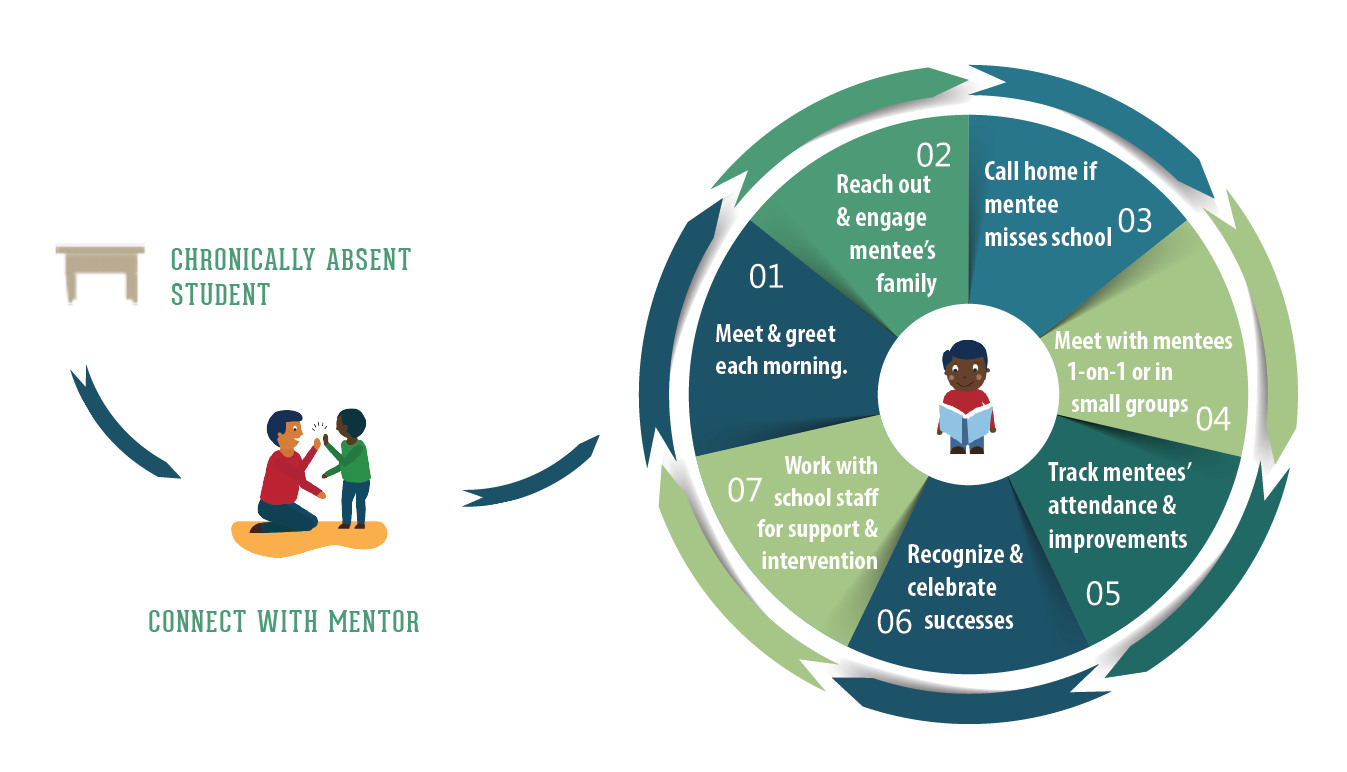What Does an Elementary Success Mentor Do?
Elementary success mentors are cheerleaders, advocates, and motivators who encourage their mentees to attend school every day.
This section describes the seven key elements that define the role of a success mentor, drawn from the experience of the New York City Department of Education.
How is a Success Mentor Different from or Similar to Traditional Mentoring Programs?
In contrast to more traditional mentoring, the Success Mentor model is much more integrated into the school environment, focused on attendance and attendance data, and dependent upon family engagement for success especially in the early elementary years. Below is an outline of key differences and similarities.
